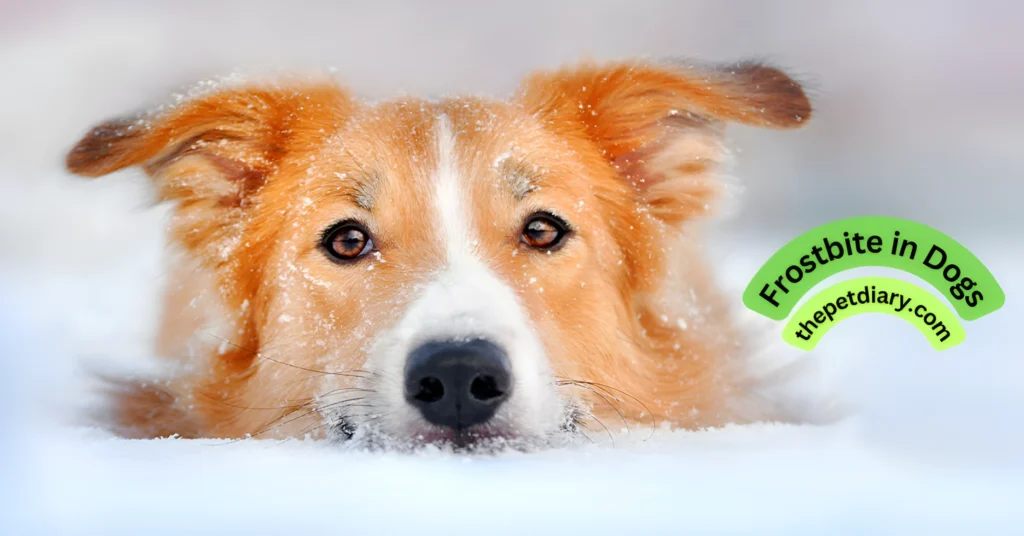The Beagle dog is one of the most popular and beloved hound breeds in the world. Known for their cheerful temperament, keen sense of smell, and compact yet athletic build, the breed of beagles has charmed families for centuries. Originally bred as scent hounds to track small game, Beagles today are valued just as much for companionship as for hunting. Their combination of playfulness, loyalty, and intelligence makes them excellent pets for singles, couples, and families alike. Whether you are researching a beagle puppy, comparing beagle breeders puppies, or considering adoption of an older dog, this comprehensive Beagle Dog Guide will provide everything you need: care requirements, health insights, cost expectations, and fascinating facts about different colors and mixes, such as the beagle poodle mix and the beagle dachshund mix.
Beagle Breed Overview
Beagles are compact, muscular hounds that generally stand between 13 and 15 inches tall and weigh 20 to 30 pounds. Their short, weather-resistant coat comes in a variety of colors, including the familiar tri-color pattern of black, tan, and white. Other eye-catching variations include the black and white beagle, the striking blue beagle, and the sunny lemon beagle.
Types and Sizes
In addition to the standard size, enthusiasts often mention the mini beagle, miniature beagle, or pocket beagle. Smaller versions that resemble the classic breed but weigh less and stand only 7 to 12 inches tall. There is even the historical Old English pocket beagle, a term sometimes used for these petite companions.
| Size Type | Height | Weight | Notes |
|---|---|---|---|
| Standard | 13–15 in | 20–30 lb | Classic family companion |
| Pocket/Miniature | 7–12 in | 7–15 lb | Often called mini beagle or pocket beagle |
Regardless of size, all Beagles share similar personality traits: a curious nose, a merry disposition, and a love of both adventure and cuddling.
Temperament & Personality

Beagles are friendly, social, and endlessly curious. Bred to hunt in packs, they thrive on companionship with humans and other dogs. Their loving nature makes them superb family pets who get along well with children and other animals.
However, their intelligence and independence can sometimes be mistaken for stubbornness. People unfamiliar with the breed may claim why beagles are the worst dogs, but this is more myth than truth. In reality, Beagles simply need consistent training and regular exercise to channel their boundless energy and keen sense of smell.
Key personality highlights:
-
Affectionate & Loyal: They form strong bonds and often follow their favorite person around the house.
-
Energetic & Playful: Daily walks, games of fetch, and scent-tracking activities keep them happy.
-
Alert & Vocal: Their signature bay or “Beagle bark” makes them good watchdogs, though they’re generally too friendly to be aggressive.
Proper socialization and positive reinforcement training from puppyhood ensure your beagle puppies grow into well-mannered adults.
Beagle Care Essentials
Caring for a Beagle dog means meeting their physical, mental, and emotional needs every single day. These cheerful hounds are easygoing but thrive on activity and routine.
Daily Exercise/ Beagle Dog
Beagles were bred for hunting, so their energy level is higher than many other small breeds. Plan for at least one hour of brisk walking or active play every day. Games such as scent trails or fetch in a fenced yard help satisfy their hunting instincts.
Grooming/ Beagle Dog
The Beagle’s short, dense coat is low-maintenance. A weekly brushing removes loose hair and keeps the coat shiny. Pay special attention to their floppy ears; regular cleaning prevents infections.
Nutrition and Feeding/ Beagle Dog
| Life Stage | Calories per Day | Notes |
|---|---|---|
| Puppy | 990–1,200 | High-protein meals to support growth and strong bones |
| Adult | 674–922 | Adjust based on activity level and weight management |
High-quality dry beagles food with real meat as the first ingredient is ideal. Avoid fillers like corn and excessive treats to prevent obesity.
Beagle Dog Training and Socialization
Start obedience training early using positive reinforcement. Beagles respond well to treats and praise. Early socialization with other dogs and people helps your beagle puppy grow into a confident adult.
Beagle Dog Health and Life Expectancy

The average beagle life expectancy is 12–15 years, making them one of the longer-lived medium breeds. Proper care and regular veterinary checkups can help them reach the upper end of that range.
Common Health Issues/ Beagle Dog:
While generally robust, can beagle face specific health concerns:
-
Hip Dysplasia: A genetic condition where the hip joint doesn’t fit perfectly, potentially causing arthritis.
-
Hypothyroidism: Leads to weight gain and lethargy if untreated.
-
Epilepsy: Some Beagles experience seizures, which can usually be managed with medication.
-
Ear infections are common due to their floppy ears, so routine ear cleaning is important.
These are the most typical beagle health issues; responsible breeders screen for them to reduce risk. When seeking a dog from beagle breeders near me, always request health clearances.
Preventive Care Tips/ Beagle Dog:
-
Schedule annual vet exams and keep vaccinations current.
-
Brush teeth at least three times a week to prevent dental disease.
-
Provide a balanced diet and daily exercise to maintain a healthy weight.
By following these guidelines, you’ll help your beagle puppies grow into strong adults and your older Beagle maintain a vibrant, happy life.
Beagle Dog Puppies and Breeders:

Adding a beagle puppy to your household is exciting, but careful planning ensures a healthy, happy companion.
Finding Reputable Breeders
When searching for beagle breeders near me or beagle breeders puppies, look for breeders who:
-
Provide health clearances for genetic conditions.
-
Offer clean, humane living conditions.
-
Allow you to meet the puppy’s parents.
Avoid listings that simply advertise a beagle for sell without verifiable credentials. Reputable breeders also provide guidance on beagle health issues and proper puppy care.
Adoption and Rescue
Don’t overlook local shelters or Beagle-specific rescues. Many wonderful beagle dogs of all ages need loving homes. Adoption fees are often lower than the beagle dogs cost from breeders and usually include initial vaccinations and spay/neuter services.
Caring for Beagle Puppies
Young beagle puppies are energetic explorers. Provide:
-
Consistent Training: Begin basic commands, sit, stay, and come using positive reinforcement.
-
Safe Environment: Puppy-proof your home to prevent accidents.
-
Proper Nutrition: Follow the feeding table from Part 2 to meet the needs of growing pups.
Raising a beagle puppy requires patience and structure, but their affectionate personality makes the effort worthwhile.
Popular Beagle Dog Mixes
Beagles are frequently crossed with other breeds to create charming hybrids that combine desirable traits. Here are some well-known mixes:
Dotson beagle mix dog
Beagle German Shepherd Mix Dog
Beagle Poodle Mix
Also known as the beagle and poodle mix, this cross brings the intelligence and low-shedding coat of the Poodle with the Beagle’s playful spirit.
Beagle Dachshund Mix
The beagle dachshund mix, sometimes called the dachshund beagle mix, is a small, spirited companion with a keen sense of smell and a courageous attitude.
Beagle Bulldog Mix
The beagle bulldog mix blends the Beagle’s curiosity with the Bulldog’s calm, sturdy build.
Pitbull Beagle Mix
A pitbull beagle mix often exhibits strength and energy, making consistent training essential.
Other Unique Hybrids
Some breeders experiment with less common crosses, such as a toy beagle with other small breeds, creating adorable companions for apartment dwellers.
Beagle Size Chart (for Purebreds & Mixes)
| Type | Height | Weight | Notes |
|---|---|---|---|
| Standard Beagle | 13–15 inches | 20–30 pounds | Classic family pet, energetic and loving |
| Pocket Beagle / Mini | 7–12 inches | 7–15 pounds | Sometimes called mini beagle or miniature beagle |
| Mix Breeds (average) | Varies | Varies | Depends on the non-Beagle parent’s size and genetics |
Unique Beagle Dog Colors and Types
Although the classic tri-color (black, tan, and white) Beagle is most common, the breed boasts a surprising range of striking shades and patterns.
Lemon Beagle
The lemon beagle features a soft white coat with pale yellow patches. Puppies are typically born almost white, and the lemon hue develops as they mature.
Blue Beagle
A rare and eye-catching variety, the blue beagle displays a bluish-gray tint on the coat, often mixed with white and tan. This coloration results from a dilution gene and requires no special care beyond standard grooming.
Beagle Elizabeth
The term Beagle Elizabeth is sometimes used to describe Beagles with a distinctive neck ruff, reminiscent of the Elizabethan ruff collar. While not an official variety, the look is admired by enthusiasts.
Pocket & Miniature Beagles
As mentioned earlier, the pocket beagle, full grown mini beagle, and miniature beagle are smaller versions bred for people who want a more compact companion. Despite their size, these dogs retain the same friendly and curious personality as the standard breed.
Conclusion of Beagle Dog:
The Beagle dog is a perfect combination of playfulness, loyalty, and intelligence. Whether you’re adopting a lively beagle puppy, caring for mature beagle dogs, or exploring unique mixes like the beagle poodle mix, beagle dachshund mix, or beagle bulldog mix, this breed offers companionship and joy for families and individuals alike. Learn more at ThePetDiary.com.
FAQS of Beagle Dog:
1. What is the average Beagle life expectancy?
The beagle’s life expectancy is typically 12–15 years with proper nutrition, exercise, and regular veterinary care.
2. Are Beagles good family dogs?
Yes. The Beagle dog is affectionate, gentle with children, and social with other pets, making it an excellent family companion.
3. How much exercise does a Beagle need daily?
Plan for at least one hour of brisk walking or active play each day to keep your Beagle fit and mentally stimulated.
4. What are common Beagle health issues?
Typical beagle health issues include hip dysplasia, hypothyroidism, epilepsy, and ear infections due to their floppy ears.
5. How much does a Beagle cost?
The beagle dogs vary by location and breeder, generally ranging from $400 to $1,200, depending on lineage and health certifications.
6. What colors do Beagles come in?
Beagles appear in many colors, including tri-color, black and white beagle, blue beagle, and the charming lemon beagle.
7. Are Beagle mixes good pets?
Yes. Mixes such as the beagle poodle mix, beagle dachshund mix, and beagle bulldog mix often inherit the friendly Beagle temperament with unique traits from the other parent breed.
8. Do Beagles shed a lot?
Beagles shed moderately year-round. Weekly brushing helps manage loose hair and keeps their short coat healthy.


